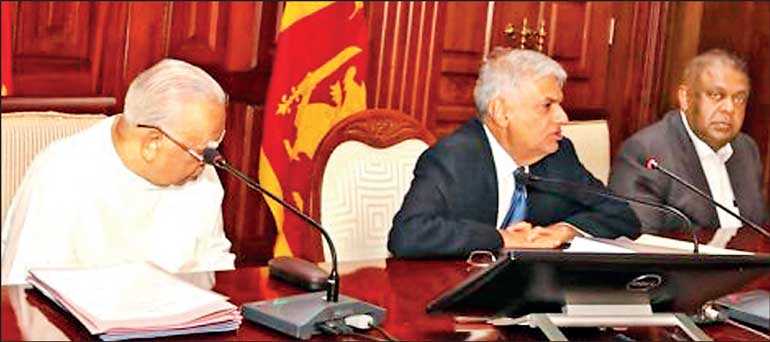Saturday Feb 21, 2026
Saturday Feb 21, 2026
Thursday, 30 May 2019 00:00 - - {{hitsCtrl.values.hits}}

EDB together with the Ministry of Plantation Industries, RDD and the RRI will be organising a series of workshops to give smallholder farmers the necessary awareness and knowledge on productivity improvement through adaptation of modern technology in the year 2019.
As a resource-based, technologically sophisticated industry with global linkages, the rubber industry plays an important role in Sri Lanka’s economy. Its centre of gravity has shifted rapidly to value addition from raw rubber production. This transformation needs to be nurtured and managed and consolidated to optimise benefits.
Rubber is the second most important plantation crop in Sri Lanka in terms of export earnings and employment generation. The rubber production of Sri Lanka has reduced over the past decade due to changes in weather patterns, managerial inefficiencies, low productivity and lack of technology being applied in planting, tapping, etc. Compared with global standards, Sri Lanka ranks low in terms of most productivity measures. Land productivity or latex yields in rubber plantations of Sri Lanka are below world averages.
The smallholder rubber farmers contribute considerably to the total rubber production of the country. However, their production has reduced considerably due to inefficiencies in managing the cultivations, low productivity, and lack of application of technology, which has resulted in low yield and high cost of production.
Therefore, it has become vital that awareness is created among the rubber production value chain on production, productivity, application of technology, knowhow, etc. among the smallholders.
The first workshop in this regard will be held in Kegalle on 31 May for 40 selected smallholder farmers. The workshop will be on “Productivity Improvement for Rubber Smallholders through Adaptation of Modern Technology”.
The objective of the workshop is to increase the national rubber production and overall productivity through popularising proven modern technology practices among smallholders to reduce the cost of production and enhance profitability in plantations and to ensure a sustainable supply chain for the rubber products industry in Sri Lanka.
The resource personnel for the workshop and the content development will be done by the RRI. The RDD who is working closely with the EDB and the RRI will be involved in the follow-up activities with the support of their Rubber Development Officers.
The Ministry of Plantation industries is supporting the initiative by coordinating the activities of the institutions under the Ministry to successfully conduct the workshop.
The participating rubber farmers will be educated on early tapping, low intensity tapping, yield stimulation, application of rain guards and general knowledge on natural rubber prices fluctuations, global demand for natural rubber, etc.
Continuous and close follow up on the implementation of the knowledge gained by farmers will be carried out. Pilot trials will be conducted by the 40 farmers in their own rubber plantations and the rubber yield will be monitored and analysed by the officers of RDD and EDB.
Further a material package will be given to the participating farmers as an incentive. Tapping knives and chemicals will be provided by the RDD and the RRI respectively. The tapping head lights will be donated by Camso Loadstar Ltd, one of the major rubber products manufacturers and exporter using Sri Lankan natural rubber.
The EDB is planning to organise the 2nd workshop in this regard in the Monaragala District to continue awareness on productivity improvement among the rubber smallholders in collaboration with the Ministry of Plantation Industries, RRI and RDD.